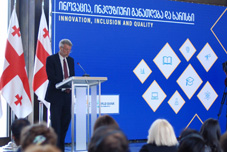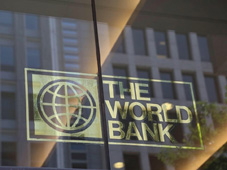
World Bank supports Georgian human capital and offers $102.7 million to enhance the quality of education
By Khatia Bzhalava
Tuesday, March 10
On March 5th, 2020, World Bank declared its aim to fund the government of Georgia with $102.7 "to enhance the quality of education in Georgia, including infrastructural improvements as well as arranging inclusive studies."
The meeting regarding this was held at the ceremonial palace of Georgia, where Sebastian Molineus-World Bank Regional Director for the South Caucasus and Mikheil Chkhenkeli, Minister of Education, Science, Culture and Sport of Georgia expressed their support for the cooperation to fully achieve the goal.
“We are excited to support the Georgian Government’s commitment to the new generation,” says Sebastian “We believe that innovative, inclusive and high-quality education is essential for human capital development and will allow narrowing the skills gap between learning outcomes and labor market expectations.”
The project has five overall goals:
- Expanding access to and improving the quality of early childhood education and care
- Fostering quality teaching and learning in general education
- Strengthening financing options and promoting adherence to higher education to international standards
- System strengthening and stakeholder communication
- Supporting project management, monitoring, and evaluation
The project intends to build up to 5 new schools, to rehabilitate about 60 existing schools and to introduce over 150 child-centered and modern preschool education programs for a successful transition to school.
“The active and fruitful cooperation between the Government of Georgia and the World Bank will bring tangible and stable results for the education system,” said Chkhenkeli.
The most appreciable part of the project is that special consideration and support will be given to gender equality and vulnerable populations including students and schools with low socioeconomic status located in rural and remote areas, as well as ethnic minorities and students with diverse learning needs.
The project was approved by the World Bank Board of Executive Directors on May 29, 2019, and the Financing Agreement was signed on June 18 of the same year.
Research from the world bank and GPE (Global Partnership for Education) finds that the gap between children with and without disabilities has increased dramatically over time.
The World Bank’s aim is that all its education programs and projects will be disability inclusive by 2025. Among other things, this means making schools physically accessible for the disabled, training teachers to adapt their teaching strategies to every student and increasing the supply of accessible learning materials.


